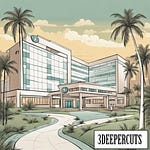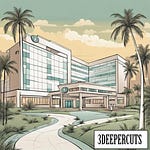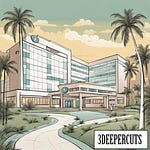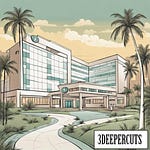In the summer of 2016, I was wrapping up my green-side tour as a General Medical Officer.
The clinic had a great view of the Mountains that ran through 22-Area on Camp Pendleton, California. Though it was a great time for me, it was also somewhat lonely and isolating. Most of my friends from intern-year had moved on to other commands. Most of my friends from medical school had already transitioned out into community or academic practice.
My isolation was nothing compared to the story I was told by one of my company commanders.
One of the Marines, a 35-year-old gentleman, was coming in for a final physical before exiting the military. His wife had left him. He had chronic back pain, one shot knee and a persistent ringing in his ears. The last six months had him in and out of neurology clinics and Wounded Warrior Battalion to assess (and treat) traumatic brain injury.
More than his musculoskeletal injuries was a physiologic state of chronic fatigue, chronic stress colloquially referred to as “Operator Syndrome.” His lab values for free testosterone were at the lower limit of normal for his age. But is physiologic performance (mood, libido, energy) were that of a 70-year old man.
Operator Syndrome is a term used in the special operations community. But it wasn’t unique to special forces. Infantry marines, machine gunners and other combat-facing MOS’s would experience similar symptoms.
At the time, I didn’t know how to manage this guy. Testosterone replacement therapy was considered taboo in routine primary care. As a Lieutenant medical officer with no specialty training, I was not in a position to manage this guy’s endocrine system.
So I approved his outside consultation to a private practice out in Oceanside, California.
As I continued my journey in medicine, I would encounter other “hard-charging” guys who would hit a brick-wall later in life. Through some combination of genetics, chronic stress and life situations, they would find themselves in middle age seeking physician-help for their syndrome.
In this episode of
we talk to my friend and colleague CoffeeBlackMD an ICU physician and weight-lifter, who runs a concierge practice focused on total health, including testosterone replacement therapy.The conversation covers common symptoms of low testosterone, treatment options, the expected costs associated with TRT, and the integration of weight loss medications like tirzepatide. We delve into the challenges and logistics of running a direct care practice (e.g. cash-based, no insurance) and examine the future of personalized medical care.
00:00 Introduction: An Essay by CoffeeBlackMD
06:04 What has CoffeeBlackMD been up to for the last year?
07:24 What are the main challenges in managing testosterone replacement?
08:24 What are some myths and misconceptions about modern TRT?
11:34 How do you define low-dose TRT?
15:46 How do you manage estrogen levels?
23:06 How did CoffeeBlackMD start his consultation practice?
29:56 What are some technical and business challenges he faced?
39:51 How does the average guy budget for TRT costs?
42:08 How is the dose of therapy adjusted for each patient?
42:40 What is the importance of testicular support?
43:33 What is the cost and frequency of treatments?
44:25 What are some pharmaceutical and research peptides being used?
46:02 What are the other TRT clinic models being used on the market?
47:57 What are some medications used for testicular support?
54:37 How do weight-loss and TRT go together?
55:11 What are the pros and cons of Semaglutide vs. Tirzepatide?
56:25 What type of patient benefits from combined GLP-1 and TRT?
01:00:02 What is the association between modern lifestyle and metabolic dysfunction?
01:04:08 What are the main challenges of our current health system?
01:12:30 How does direct primary care interface with a TRT consultancy practice?
01:15:26 Could health insurance be crowd-funded (instead of the current grifting model)?
01:17:53 Conclusion and Final Thoughts
SPEAKER LINKS:
X: @CoffeeBlackMD
HOST LINKS:
X: @chuckg_md
PODCAST LINKS:
X: @3deepercuts_pod
www.3deepercuts.net
Thanks for listening, Professors. Until next time, be well and stay curious.
In strength,
3DEEPERCUTS PUBLISHING 2025











